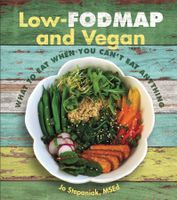Advertisement
Resistant starch
By Jo Stepaniak
Published 2016
Resistant starch (RS) is a type of starch that isn’t fully broken down and absorbed in the stomach or small intestine and reaches the colon intact, making it “resistant” to digestion. Once RS reaches the large intestine, bacteria ferment the starch and produce gas. In many ways, resistant starch is similar to and behaves like fermentable fiber and FODMAPs in the digestive tract and is a common IBS trigger. Undercooked or cooked and then cooled or dried high-starch plant foods, such as potatoes (think potato salad and instant mashed potatoes), sweet potatoes, dried pastas, and rice (think rice salads and fried rice), contain more resistant starch than fully cooked hot or warm fresh foods. Additional sources of resistant starch include legumes, unripe bananas, raw potatoes, potato starch, processed foods (such as cakes, cookies, chips, and crackers), breads, cashews, and raw oats, just to name a few. If you have difficulty digesting resistant starch, try minimizing your consumption of foods with RS, cook starchy foods thoroughly, and avoid eating leftover potatoes, rice, and other cooked-then-chilled high-starch foods.

